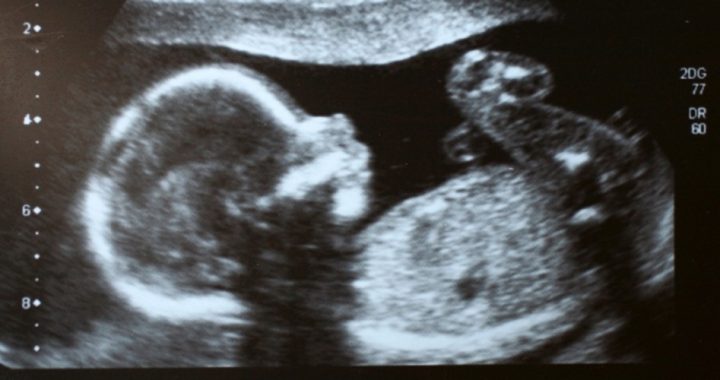
On Tuesday, the U.S. House of Representatives passed the Pain-Capable Unborn Protection Act by a vote of 237-189. Under the bill, a mother cannot abort her unborn child after 20 weeks of gestation, as increasing evidence shows that unborn babies are capable of feeling pain after that time.
“The bill, if enacted into law, would help to facilitate the culture of life to which our Nation aspires,” the measure reads. “Additionally, the legislation would promote a science-based approach to unborn life, as recent advancements have revealed that the physical structures necessary to experience pain are developed within 20 weeks.”
The bill also points out that the United States is one of just seven nations out of 198 that allow elective abortions after 20 weeks of pregnancy. The bill carves out exceptions only for cases of rape, incest, or if the life of the mother is at risk. Any abortion provider who violates the bill would face up to five years in prison and pay a penalty.
House Majority Leader Kevin McCarthy (R-Calif.) said in a statement prior to the vote, “The Pain-Capable Unborn Child Protection Act will protect the voiceless, the vulnerable, and the marginalized. It will protect those children who science has proven can feel pain, and give them a chance to grow and live full and happy lives.”
The bill had its detractors, including Democrat Gwen Moore of Wisconsin, who claimed that the legislation is a “cruel and ruthless attempt to undermine women.”
Critics of such bills seem to ignore the scientific evidence of fetal pain that dates as far back as the 1980s, when Dr. Steven Zielinski, an internal medicine physician and one of the first to provide evidence of fetal pain, testified before Congress that fetal pain can be experienced as early as eight weeks.
Decades ago, Zielinski and his colleagues Dr. Vincent Collins and Thomas Marzen wrote,
Functioning neurological structures necessary for pain sensation are developed as early as 8 weeks, but certainly by 13 ½ weeks of gestation. Sensory nerves, including nociceptors, reach the skin of the fetus before the 9th week of gestation. The first detectable brain activity occurs in the thalamus between the 8th and 10th weeks.… By 13 ½ weeks, the entire sensory nervous system functions as a whole in all parts of the body.
Four years ago, Dr. Maureen Condic, associate professor of neurobiology at the University of Utah School of Medicine, also testified before Congress that unborn babies are capable of feeling pain somewhere between eight and 10 weeks into the pregnancy.
A report commissioned by the U.S. Department of Justice seemed to confirm these findings. According to the author, Dr. Kanwaljeet Anand at the University of Tennessee, fetuses are capable of experiencing pain at 20 weeks, and possibly sooner, and that it is an intense feeling of pain.
“It is my opinion that the human fetus possesses the ability to experience pain from 20 weeks of gestation, if not earlier, and the pain perceived by a fetus is possibly more intense than that perceived by term newborns or older children,” he wrote.
The possibility that a fetus can experience pain from an abortion after 20 weeks should encourage support for this bill, even among those who would otherwise support abortion.
“Basic compassion for human life demands that this legislation be enacted all over the country,” stated National Right to Life Director of State Legislation Mary Spaulding Balch, J.D., in 2016, when South Carolina signed a similar bill into law.
And for those who recognize that abortion is murder at any stage, bills such as these are at least a small step toward the end goal of ending all abortions by forcing advocates to look at the process with a more compassionate eye.
Nearly half of all states have enacted some sort of limit on abortion at a specific gestational age because of concerns that fetuses experience pain after a certain time, according to the Guttmacher Institute: Alabama, Arkansas, Georgia, Indiana, Iowa, Kansas, Kentucky, Louisiana, Mississippi, Nebraska, North Carolina, North Dakota, Ohio, Oklahoma, South Carolina, South Dakota, Texas, West Virginia, and Wisconsin. Similar bans have been blocked in Arizona and Idaho, while Georgia’s law is being challenged in court by three abortionists.
Unfortunately, the House bill is not likely to have enough votes to pass the Senate, further underscoring just how disconnected congressional Democrats are from their constituents. Poll after poll shows that the majority of Americans support such measures. Both a 2017 Marist poll and a 2014 Quinnipiac University poll found that approximately 60 percent of Americans support such legislation as long as it includes exceptions such as the ones found in this bill.
However, if the bill manages to pass the Senate, the White House has indicated that President Trump would support the measure.




